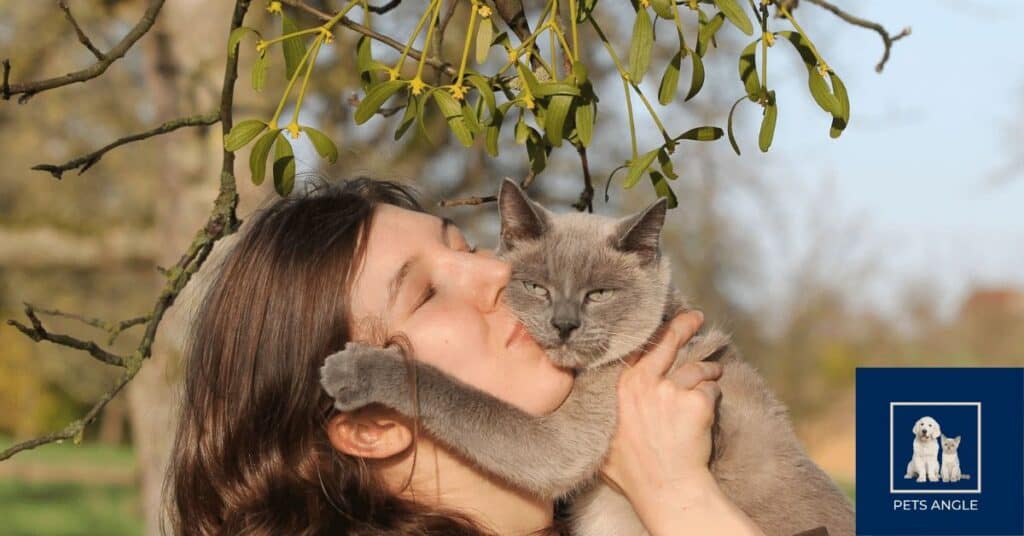Licking of humans is one of the typical ways felines display affection, and some of us are already used to it as cat parents.
The practice from our cats has been so often that we are not even concerned about how safe her saliva is on our skin.
Saliva contains a variety of substances, some of which are harmless and others of which can be hazardous, particularly to allergy sufferers. A cat’s saliva can be dangerous in some situations, so get medical help if a cat bites you.
Another opinion is that a cat’s saliva is clean and can aid in healing fresh wounds.
However, the cat shouldn’t clean or sterilize a human’s cuts, grazes, or abrasions in any circumstances, as a cat’s mouth isn’t sterile.
How Can Cat Saliva Get on Human Skin
Cat owners engage these furry companions in play quite often. The closeness can be so much that our cats share our beddings with us unannounced. Or do you expect me to send away my loyal companion?
Bite, scratch, lick, and kiss are common ways feline saliva gets on our skin. As cats like grooming themselves, they also lick our hands to show their fondness and assist in grooming us.
Indoor cat saliva is less harmful when compared to outdoor cats, but we should, however, avoid ingesting their saliva.
Therefore, we should stop the cats from licking our mouth, nose, eyes, or any other part that can facilitate an easy mixture of cat saliva with human body fluid.
Are diseases Contactable from Outdoor Cat Saliva?
Outdoor cats have bacteria in their saliva because they are sources of several zoonotic diseases, including rabies, toxoplasmosis, cutaneous larval migraines, and various nematode parasites.
Cats that roam freely outdoors are three times more likely to pick up an infection that develops into a disease. Such disorders include roundworms which can cause fever, stomach pain, and seizures (though quite unusual). Another potential harm in outdoor cat saliva is transmitting the parasite Toxoplasma Gondii, which can be spread directly to cat owners or indirectly to indoor cats. Extreme cases of this disease can lead to depression and schizophrenia in humans.
How to Prevent Dangers from Cat Saliva
The first advocacy to pet owners is to ensure their immune system is top-notch, as several challenges are attached to keeping pets. The general practice of cat hygiene is another good way to prevent your cat saliva from being infectious.
There is a specific need to know the cat-related disease and understand how the disease spreads.
Establish a strong handwashing program in your home.
After cleaning cat excrement or the places where cats wander, but before feeding your feline, everyone should properly wash their hands.
The following are some more things to take:
- Cats should not be allowed to drink toilet water.
- Don’t feed raw meat to a cat.
- Change the litter box for your cat.
- Pick up cat feces.
- Groom their cat.
- Encourage people not to kiss cats on the lips.
- Keep cat living spaces clean and tidy.
Change the kitty litter daily and thoroughly wash your hands afterward.

